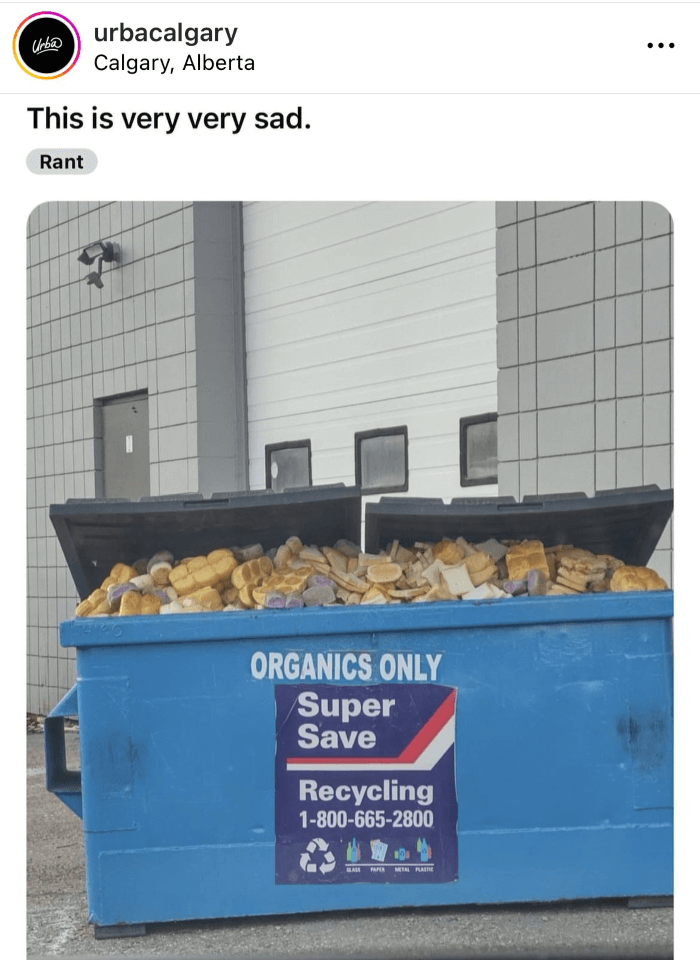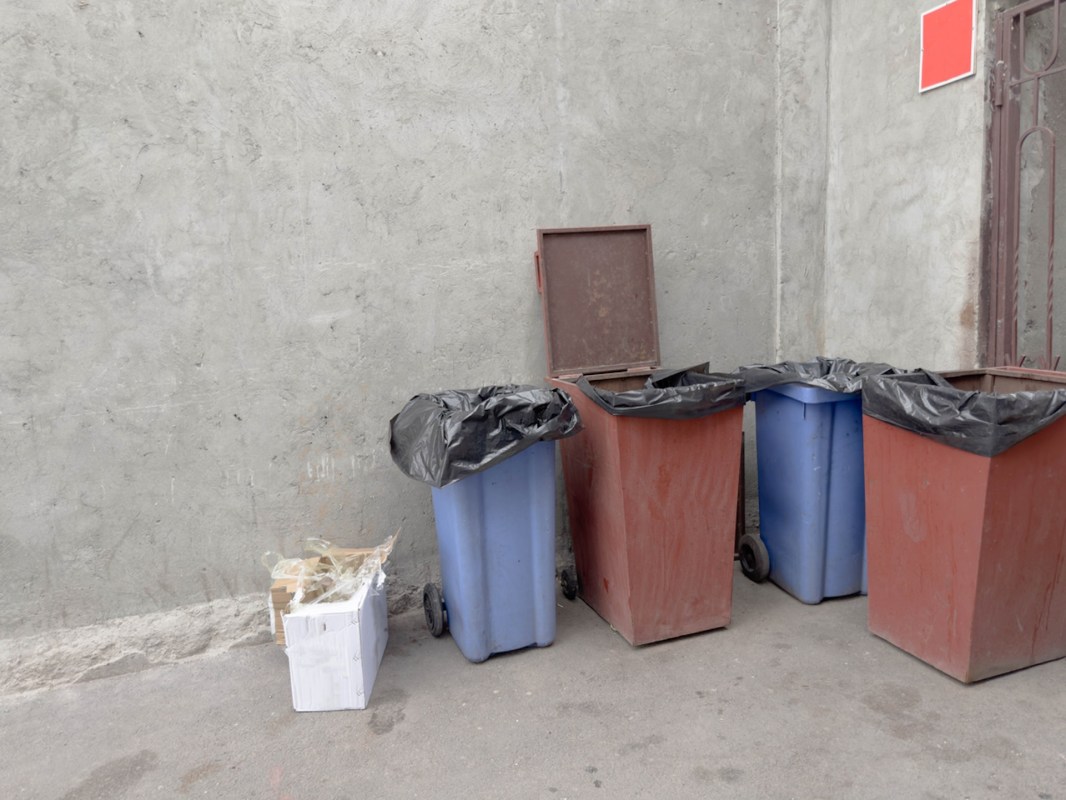World hunger is a big problem, but reducing food waste could help solve it.
A Redditor posted a screengrab from URBA Calgary to the r/alberta subreddit. The image shows a dumpster overflowing with bread and is captioned, "This is very, very sad."

"Wasted food in Calgary," the original poster wrote.
According to The World Counts, every year, "a third of all food for human consumption in the world is lost or wasted." That's "1.3 billion tons of food suitable for human consumption."
Food can be lost throughout many stages, from harvest to processing, but the website noted that "35% of the wasted food is simply thrown out by supermarkets, shops, and households."
The Food and Agriculture Organization of the United Nations estimated that "the food that is lost and wasted could feed 1.26 billion hungry people every year." So why aren't businesses donating their food?
Unfortunately, it's not that simple. Food that is thrown away may be moldy, contaminated, or recalled. In these cases, the food is unsafe for human consumption, and many locations will not accept it. Companies may also view food waste as profit loss, despite a study showing "the average restaurant [saves] $7 for every $1 invested in reducing kitchen food waste."
Expired donations were a concern for many of the post's commenters, who cited potential consequences. However, depending on the area, there may be legislation in place that protects donors.
In the United States, the Bill Emerson Good Samaritan Food Donation Act is designed to protect donors "from civil and criminal liability should the product donated in good faith later cause harm to the recipient." Even so, this only applies to food deemed fit for human consumption.
However, there have been positive examples of grocery stores donating food to prevent it from surpassing safe temperatures. California law even requires businesses to "donate the maximum amount of edible food they would otherwise dispose."
Even if the food can't be eaten, there are still other uses for it. Many scraps can be composted, like fruits, vegetables, and coffee grounds. Some items, like meat, bones, and dairy, aren't ideal to compost at home and should instead be taken to nearby commercial composting sites, according to the Environmental Protection Agency.
The commenters were quick to point out the nuances of the situation.
"It's most likely a product recall, and I don't recommend trying to salvage it. Not even for feed," commented one user.
"So many people hungry ... Yet we can't see beyond profit," said another.
Join our free newsletter for cool news and actionable info that makes it easy to help yourself while helping the planet.









